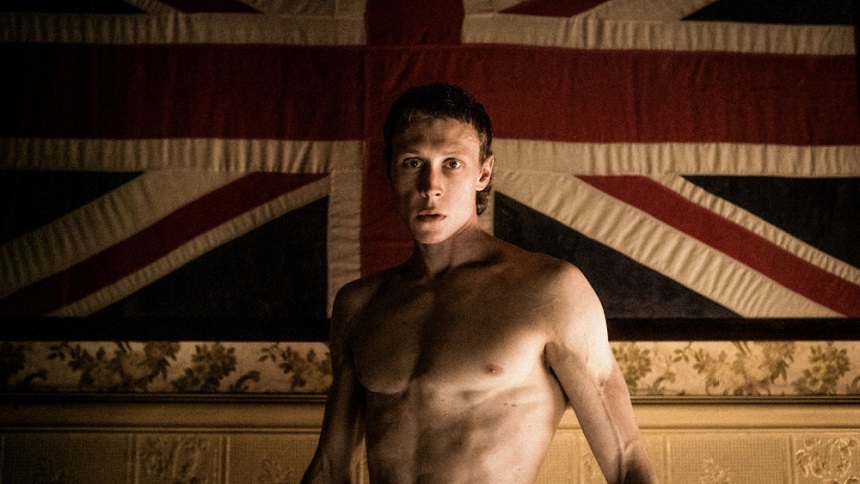L'Etrange 2019 Review: TRUE HISTORY OF THE KELLY GANG, an Entertaining Farcical Yarn

Based on the fictional Peter Carey novel of the same name, True History of the Kelly Gang is a far-flung reimagining and mythologising of the legacy of the armoured clad outlaw. Although the film is less affecting as a result of this, it touches on the unnerving, creepy and visceral elements Director Justin Kurzel (Snowtown) is known for.
The melodrama is overwrought and the film falters when it takes itself too seriously, but this is also a dark and sparse film, divided into three equally stark parts; the boyhood, adulthood and finally rebirth of the criminal known as Ned Kelly.
The trauma and neglect from his coward father and downtrodden mother mould his troubled identity. The Kelly's live in abject poverty and hate the corrupt law. This distrust is reinforced by the father-like figures that enter Ned's life. The elements of the raw and primal Victorian Australian outback also help shape who he becomes. The dark cloudy skies, dirt and muck also inform the prose, as Ned Kelly narrates his life in poetic, nihilistic and disturbing language.
There is an artifice in the pronunciation and inflection in his voice, and the film takes on a theatrical tone. It feels staged; in the mise en scene of the flat interiors and in the heightened reality of the costumed drama. Well-acted chunks from famous faces Charlie Hunnam, Russell Crowe, and Nicholas Hoult give the stage a broadness with larger-than-true-life personas that gleefully chew the scenery.
Russell Crowe is one such father figure, the outlaw Harry Power who mentors the criminal streak out of now-grown Ned (George MacKay), only to let him down as equally as his own da. Later Hoult plays a great youthful counter-point as a constable antagonist; oiled up in drag at one point, pointing a gun at a baby the next, he plays a deliciously ridiculous extreme baddie. George MacKay indelicately balances his complex emotions for these men, but channels Ned Kelly admirably.
True History of the Kelly Gang is not a subtle film, it is pulp entertainment that is rough around the edges. The weird transition to adult Ned does not work and at times his awkward voice-over line delivery feels misplaced, better suited to the context of the book. The story is a very reductive one, but nevertheless invokes a good yarn or fable, just one not to over-think about.
Despite the inherent melodrama of this tall tale, Tasmanian actor Essie Davis (The Babadook) outacts everyone as Ned’s twisted desperate matriarch of nothing, stealing scene after scene. Unfortunately the rest of Kelly Gang are unconvincing and there is nowhere near enough screen time to develop them. Near the climax of the film cheesy lines are badly delivered by one of them, ruining some weighty and provoking scenes.
How the Kelly Gang form is fascinating however and possibly a full subject in itself as this film depicts them howling at the night, forming a primal connection. One bolstered by lady dress attire, rebelling against conformity in the 1850s. This farcical demythologizing is countered by the sudden and gritty detailed violence.
The intense and bizarre grotesque finale replays a pivotal moment in the tale, when Ned dons the infamous armour this is depicted in such an off-putting and maddening way. The last stand of the Kelly gang is not glorified, more an act of utter desperation and total abandon shown in a truly gonzo way. Later, enabled by his furious mother and with seemingly nothing left to lose she tells him to “die like a Kelly”.
The solemn conclusion of True History of the Kelly Gang is the factual hanging at the Melbourne Gaol, but the film succeeds far more than just a simple re-telling of the facts. Carey’s novel is the definitive legend, the most truthful account told with complete fiction is damn entertaining as a film, and also touches on both classism and conflict as its final dulled point.







